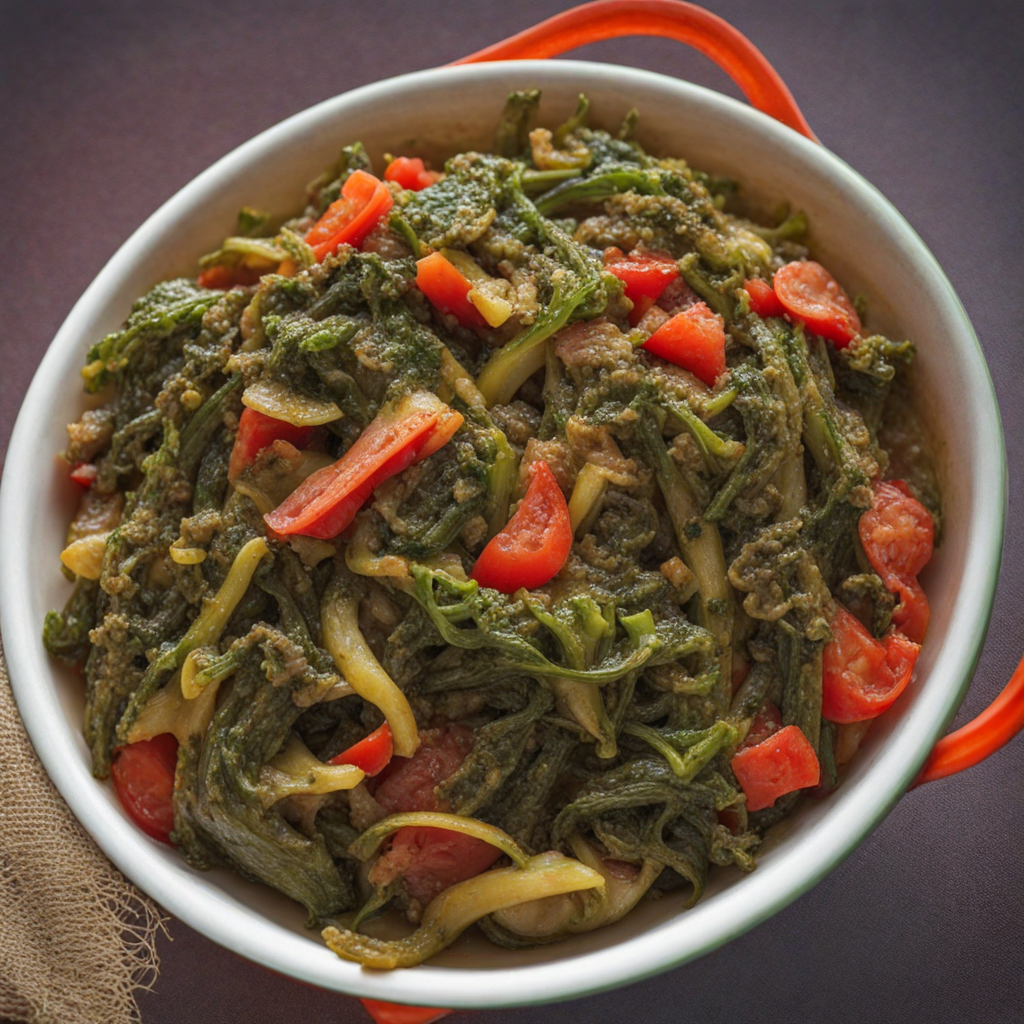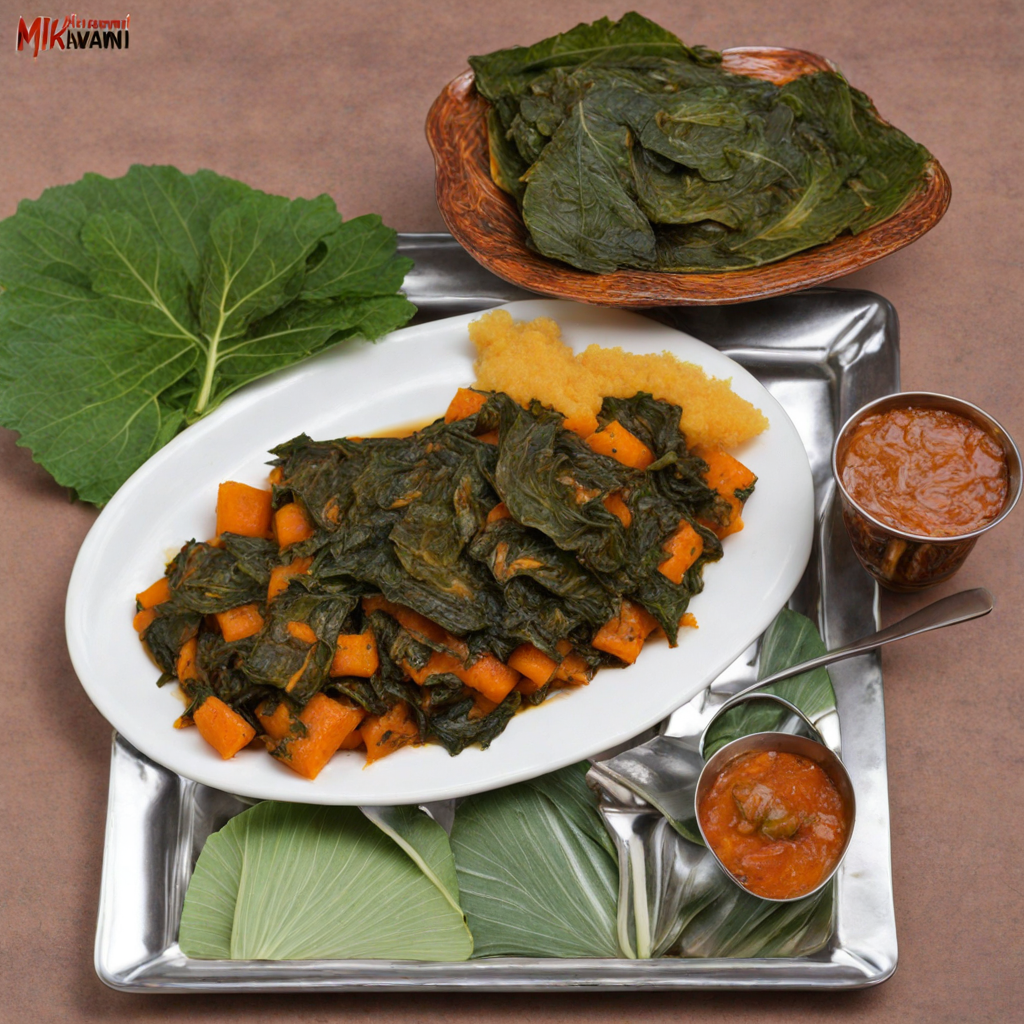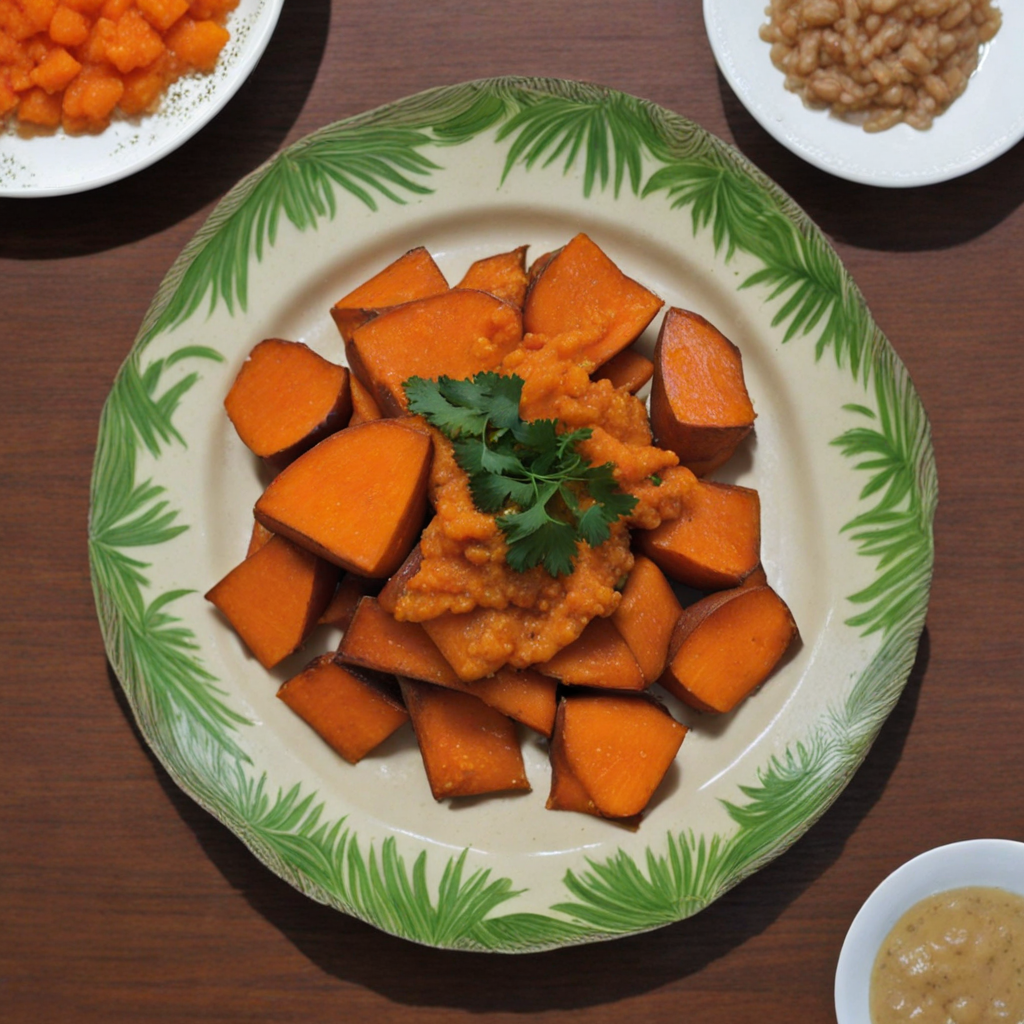Mbatata Cookies
Mbatata, a staple dish from Malawi, is a delightful and hearty preparation that showcases the country's rich culinary heritage. This traditional Malawian dish primarily features sweet potatoes, which are known locally as "mbatata." The sweet potato is a key ingredient, celebrated not just for its flavor but also for its nutritional value, making it an essential part of the Malawian diet. The dish reflects the agricultural practices of the region, where sweet potatoes are cultivated extensively due to their adaptability and resilience in various soil types. Historically, mbatata has deep roots in Malawian culture. Sweet potatoes were introduced to Africa from South America through trade routes centuries ago and have since become a vital crop across many African nations. In Malawi, they are particularly cherished for their versatility and ability to thrive in the country's climate. Mbatata is often associated with family gatherings and community celebrations, where it serves as a symbol of communal sharing and sustenance. It is not only a food item but also a cultural emblem that connects generations through shared recipes and cooking methods. The flavor of mbatata is one of its most appealing characteristics. The sweet potatoes, when cooked properly, exhibit a natural sweetness that is complemented by a slight earthiness. The dish can be further enhanced with spices or ingredients such as onions, garlic, and even chili peppers, which add layers of flavor and depth. The combination of sweetness and savory elements creates a harmonious balance that pleases the palate and satisfies hunger. Preparation of mb
How It Became This Dish
The History of Mbatata: A Culinary Treasure of Malawi #### Origins and Early History Mbatata, often referred to as sweet potato (Ipomoea batatas), is a staple food that holds a special place in the culinary landscape of Malawi. The origins of the sweet potato can be traced back to South America, where it was domesticated over 5,000 years ago. Its introduction to Africa is believed to have occurred through trade routes, particularly those that connected the Americas with the African continent during the Columbian Exchange in the late 15th century. In Malawi, sweet potatoes thrived in the warm, fertile soils, particularly in the central and northern regions. The local variety, known as mbatata, adapted well to the climate and became a crucial food source for communities. Its ability to grow in diverse conditions and provide sustenance throughout the year made it an essential crop for both sustenance and economic stability. #### Cultural Significance The importance of mbatata in Malawian culture cannot be overstated. It is more than just a food item; it is woven into the fabric of daily life and traditional practices. Mbatata is often served alongside nsima, a thick porridge made from maize, forming a staple meal for many households. This combination not only provides essential nutrients but also reflects the agricultural practices of the region, where maize and sweet potatoes are commonly cultivated together. Mbatata is also significant in social and cultural rituals. It is often featured in traditional ceremonies, such as weddings and harvest festivals, symbolizing abundance and fertility. During these celebrations, mbatata is prepared in various ways—boiled, roasted, or mashed—and shared among family and friends, reinforcing community bonds. Its presence at such events underscores its role as a unifying food, bridging generations and fostering a sense of belonging. #### Development Over Time The cultivation and preparation of mbatata have evolved significantly over the centuries. Initially, the sweet potato was primarily grown for sustenance, but as agricultural practices advanced, its role expanded. The introduction of improved farming techniques, such as crop rotation and intercropping, allowed for increased yields and better quality sweet potatoes. Farmers began to experiment with different varieties, selecting for traits such as sweetness, texture, and disease resistance. In recent years, mbatata has gained recognition beyond local consumption, thanks to the growing interest in African cuisine and the health benefits associated with sweet potatoes. Rich in vitamins, antioxidants, and fiber, mbatata is increasingly featured in health-conscious diets. This shift has led to greater awareness and appreciation of traditional foods, encouraging Malawians and international audiences alike to embrace mbatata not only as a staple but also as a nutritious option. The globalization of food culture has also impacted the way mbatata is perceived and utilized. In urban areas, it has found its way into modern culinary practices, appearing in restaurants and trendy cafes. Chefs have reimagined traditional dishes, incorporating mbatata into innovative recipes that blend local flavors with global influences. Sweet potato fries, mbatata salads, and even desserts featuring sweet potato are becoming popular, showcasing the versatility of this humble root vegetable. #### Challenges and Sustainability Despite its significance, the cultivation of mbatata faces challenges. Climate change, erratic weather patterns, and soil degradation pose threats to agricultural productivity. Farmers must adapt to these changing conditions to ensure sustainable production. Organizations and government initiatives have begun to focus on promoting sustainable agricultural practices, such as organic farming and permaculture, to help safeguard mbatata cultivation for future generations. Moreover, as global demand for sweet potatoes rises, particularly in the health food market, there is a risk that traditional farming practices could be overshadowed by commercial interests. It is essential to strike a balance between modern agricultural techniques and the preservation of traditional knowledge and cultural practices associated with mbatata. #### The Future of Mbatata Looking ahead, the future of mbatata appears promising yet requires careful stewardship. As interest in local foods continues to grow, there is an opportunity for Malawians to reclaim and celebrate their culinary heritage. The revival of traditional recipes and techniques can foster a deeper appreciation for mbatata, ensuring that it remains a vital part of Malawi's cultural identity. Furthermore, educational initiatives aimed at younger generations can help instill a sense of pride in local foods. By teaching children about the history, significance, and versatility of mbatata, future generations can carry forward the traditions associated with this cherished food. #### Conclusion Mbatata is more than just a food; it is a symbol of resilience, community, and cultural heritage in Malawi. Its journey from ancient cultivation to contemporary cuisine reflects the adaptability of both the crop and the people who cherish it. As Malawi continues to navigate the challenges of modern agriculture and globalization, the enduring legacy of mbatata will remain a testament to the rich culinary traditions of the region. Embracing its past while looking toward a sustainable future, mbatata will undoubtedly continue to nourish the people of Malawi for generations to come.
You may like
Discover local flavors from Malawi







